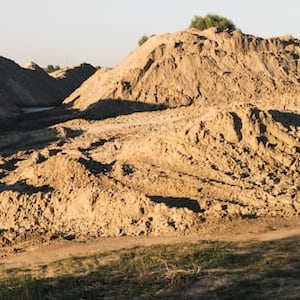halcyon days: Idiom Meaning and Origin
What does ‘halcyon days’ mean?
The idiom "halcyon days" refers to a peaceful and happy period in the past, often associated with a sense of tranquility, prosperity, and nostalgic memories.

Idiom Explorer
The idiom "many moons ago" is used to refer to a time in the past that is long ago or far away, usually implying a significant amount of time or a distant memory.
The idiom "in this day and age" refers to the present time or era, emphasizing its contrast with the past. It expresses the idea that things have changed significantly and highlights the modern advancements and developments that currently exist.
The idiom "in the flower of one's youth" refers to the period of time when someone is young and at their peak of physical and mental abilities. It implies a sense of beauty, vitality, and freshness commonly associated with flowers.
The idiom "hog heaven" refers to a state of extreme happiness, contentment, or satisfaction, usually as a result of indulging in one's favorite activities or pleasures.
The idiom "have seen one's day" means that something or someone used to be great or important in the past, but is no longer relevant or valuable in the present.
The idiom "good life" refers to a state of living that is comfortable, enjoyable, and fulfilling. It implies a life filled with happiness, success, and contentment.
The idiom "good old days" refers to a nostalgic longing for a past period of time that is remembered as better or more enjoyable than the present.
The idiom "golden years" refers to the time in a person's life when they are retired and able to enjoy leisure activities, usually associated with financial security and freedom from work obligations.
The idiom "golden age" refers to a period in history that is considered to be the peak or prime of a particular civilization, industry, or art form.
The idiom "eye of the storm" refers to a calm and peaceful moment or place, amidst a chaotic and turbulent situation.
Unveiling Mythical Origins
The good old days, also known as the halcyon days, are often viewed with nostalgia and longing. They represent a time when life seemed simpler and happier, free from the challenges and burdens of the present. The idiom "good old days" is used to evoke fond memories and to contrast them with the perceived difficulties of the present.
The days of yore, another related idiom, refers to a time in the distant past. It is often used to describe a bygone era or historical period that is romanticized and idealized. The phrase "days of yore" suggests a sense of longing for a time that is seen as more virtuous or pure.
On the other hand, the bad old days refers to a period of time that is remembered for its troubles and hardships. This idiom is used to contrast with the present, highlighting the progress and improvements that have been made over time. It serves as a reminder of the difficulties that have been overcome.
back in the day is a colloquial idiom that refers to a time in the past, often within the speaker's lifetime. It is used to reminisce about a specific period of time or to recall a particular event. The phrase "back in the day" conveys a sense of nostalgia and familiarity.
Each of these idioms shares a common thread with halcyon days, as they all evoke a sense of nostalgia and longing for a different time. They remind us to reflect on the past, appreciate the present, and strive for moments of tranquility and happiness in an ever-changing world.
Example usage
Examples of how the idiom "halcyon days" can be used in a sentence:
1. We often reminisce about the halcyon days of our childhood, when life seemed so carefree and innocent.
2. The artist's latest album is a nostalgic tribute to the halcyon days of rock and roll.
3. Despite the challenges of the present, we hold onto the hope that someday we can return to the halcyon days of peace and prosperity.
More "Nostalgia" idioms



